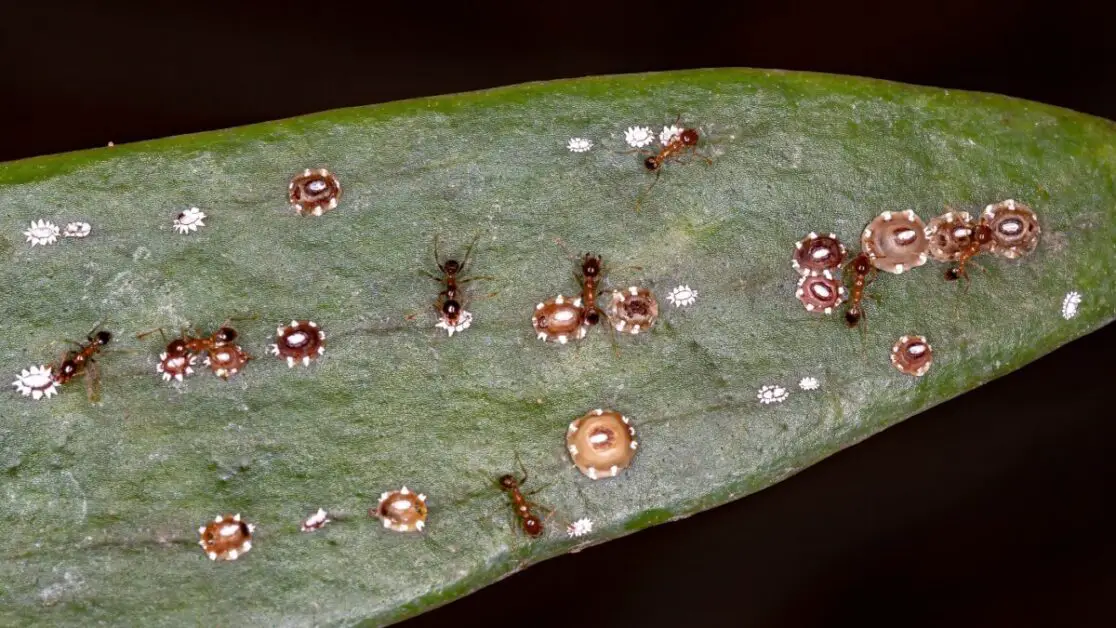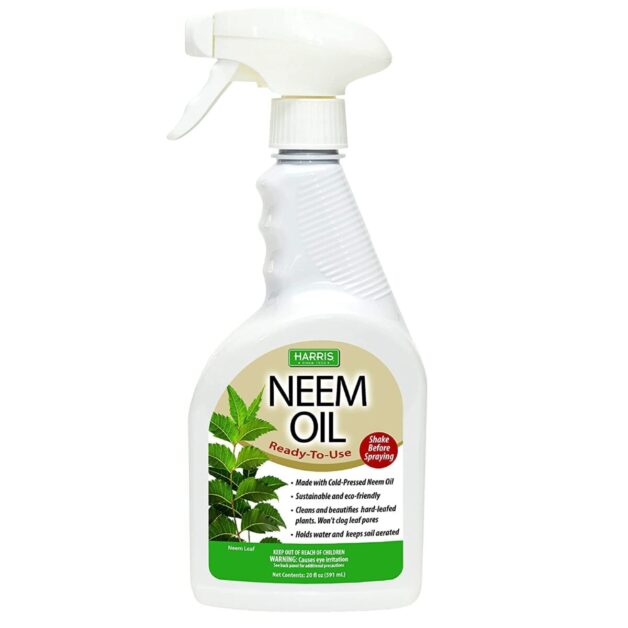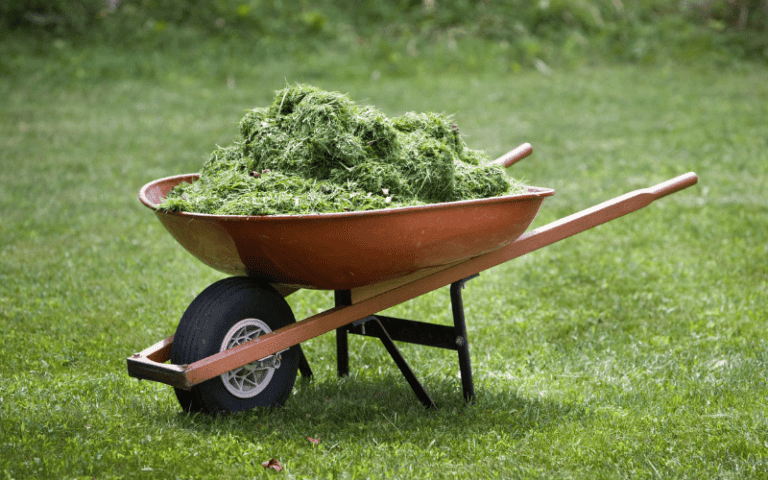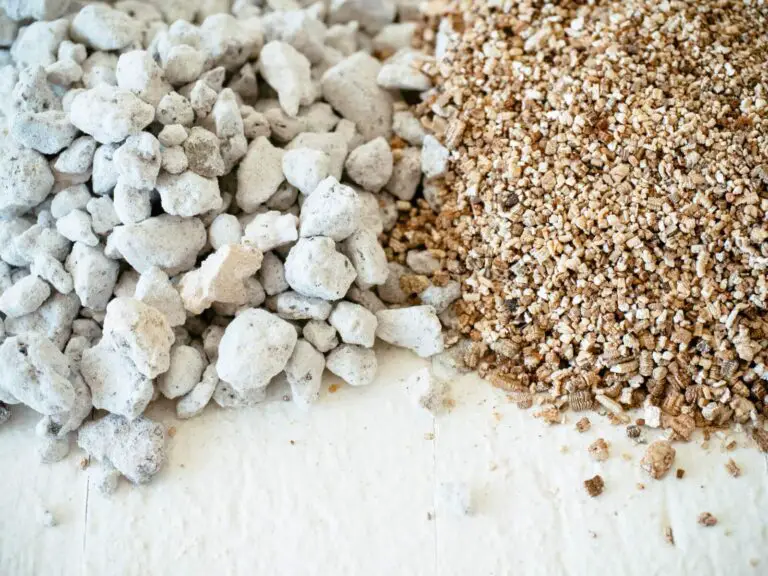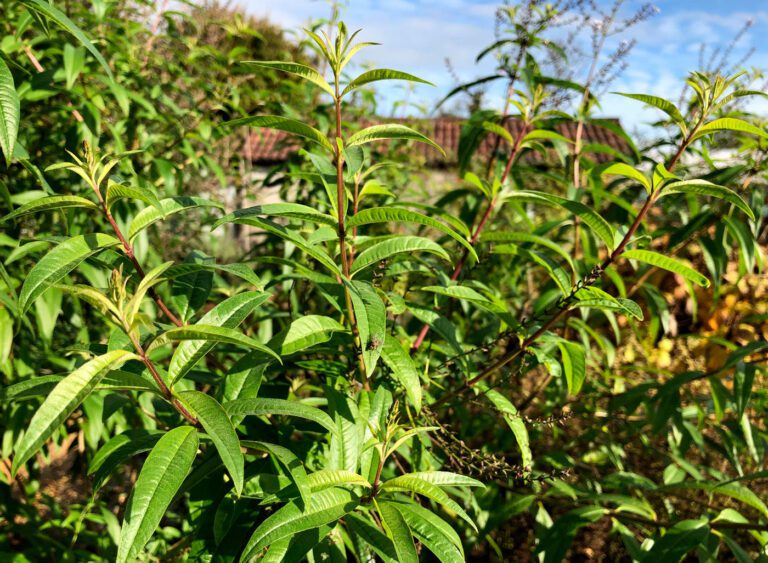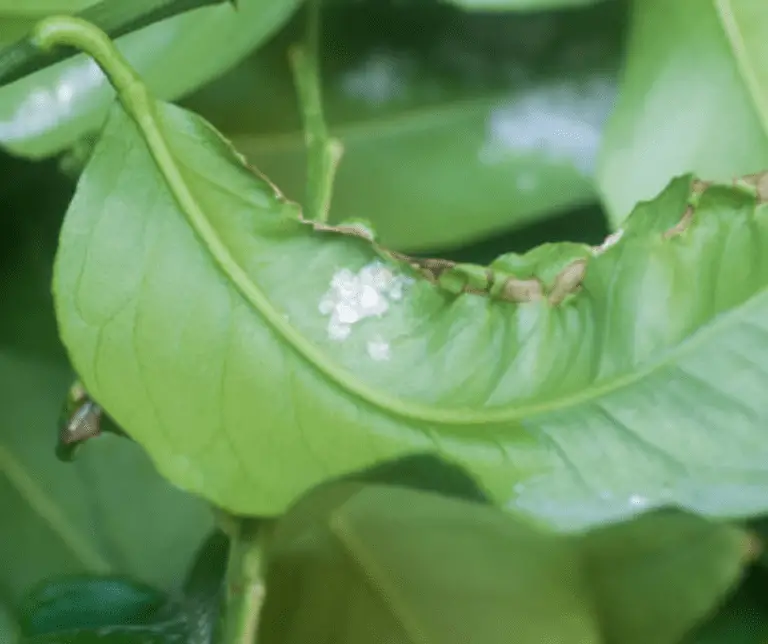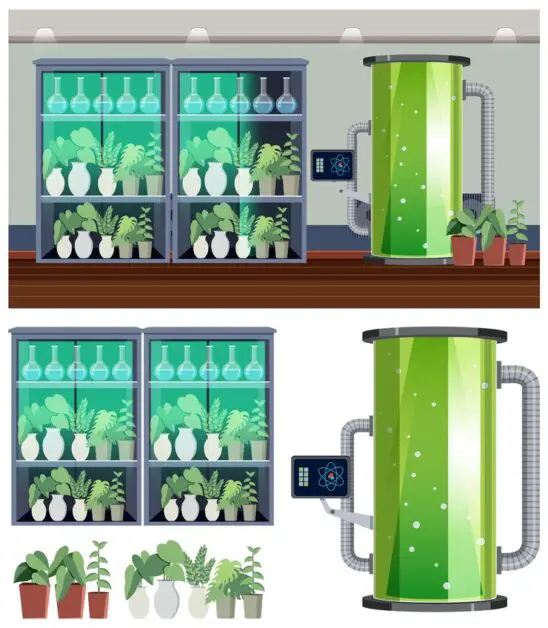How to Banish Scale Insects: 5 Effective Ways to Manage and Stop These Pests from Your Plants
Did you know that scale insects can cause serious damage to your plants, leading to reduced growth and even death? These tiny pests can be a real headache for gardeners and homeowners alike, but don’t worry – there are effective ways to banish them for good! In this blog post, we’ll share five proven methods to manage and stop scale insects from wreaking havoc on your plants. From using natural predators to applying organic pesticides, we’ve got you covered. By following these tips, you can protect your plants and enjoy a beautiful, pest-free garden. So, let’s get started and say goodbye to those pesky scale insects once and for all!
Table of Contents
Understanding Scale Insects: Identifying and Recognizing the Common Plant Pests
Scale insects are common pests that can wreak havoc on your plants if left unchecked. These small, oval-shaped creatures may not look particularly threatening, but they can cause significant damage to your beloved plants.
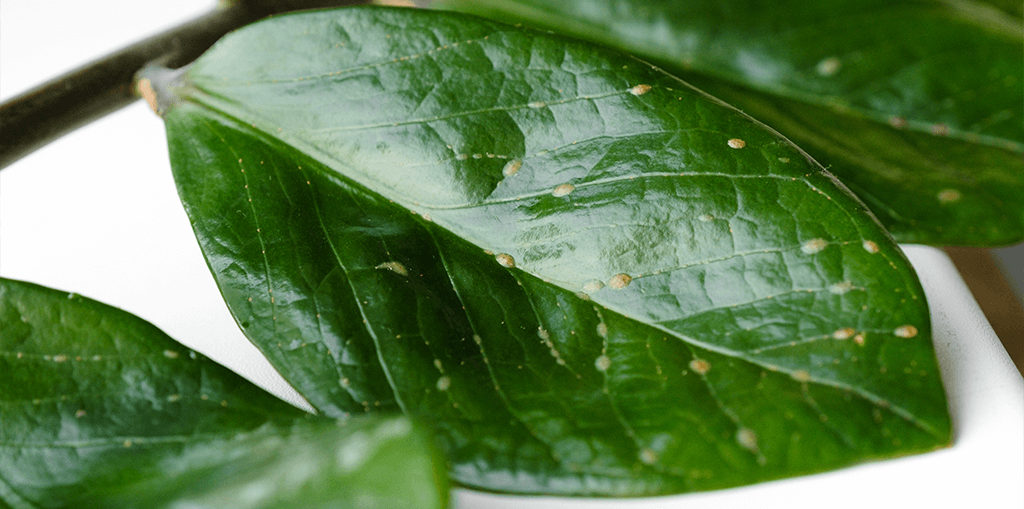
- Waxy Covering: Scale insects are characterized by their protective waxy covering. These coverings can vary in color (from brown to white) and texture (fuzzy or shiny). Look for small bumps or scales on the stems and leaves of your plants.
- Shape and Size: Scale insects come in different shapes and sizes, depending on the species. They can be flat, oval, or elongated. Some may appear like tiny discs, while others resemble elongated ovals.
- Attachment to Plants: Scales attach themselves firmly to plant surfaces. They feed on sap by inserting their piercing mouthparts into the plant tissue. This feeding can lead to weakened plants, stunted growth, and yellowing or browning of leaves.
- Plant Damage: Keep an eye out for signs of scale damage:
- Yellowing Leaves: Infested leaves may turn yellow due to sap loss.
- Wilted Appearance: Scales can cause wilting and overall decline in plant health.
- Honeydew: Some scale species excrete a sticky substance called honeydew, which attracts ants and promotes the growth of sooty mold on leaves.
- Species Variation: Different scale species have distinct appearances. Some are more challenging to spot due to their small size or inconspicuous coloration. Regular inspection is crucial.
Understanding how to identify scale insects is the first step towards effectively managing and controlling their presence in your garden.Remember to monitor your plants regularly and take prompt action if you suspect a scale infestation. Early intervention is crucial to prevent further damage and maintain healthy garden plants. 🌱🪲
The following table explains the different scale insects:
| Scale Insect Species | Host Plants | Adult Size (mm) | Reproductive Rate | Damage Severity (1-10) | Effects on Plants |
|---|---|---|---|---|---|
| 1. Armored Scale (Aspidiotidae) | Citrus, Ornamental Trees | 1-5 | Female lays 50-100 eggs | 7 (Dependent on species) | – Weakening of branches due to sap-sucking. |
| 2. Soft Scale (Coccidae) | Citrus, Shrubs, Fruit Trees | 2-5 | Lays hundreds of eggs | 5 (Dependent on species) | – Honeydew secretion leading to sooty mold growth. |
| 3. San Jose Scale | Fruit Trees, Ornamentals | 1-2 | Female lays up to 500 eggs | 8 | – Premature leaf drop and fruit deformation. |
| 4. Pine Needle Scale | Pine Trees | 1-2 | Female lays up to 100 eggs | 6 | – Needle yellowing and drop, affecting tree health. |
| 5. Euonymus Scale | Euonymus, Boxwood | 1-2 | Female lays up to 250 eggs | 7 | – Stunted growth and yellowing of leaves. |
Note: This table summarizes common scale insect species, their host plants, adult size, reproductive rates, damage severity, and the effects they have on plants. The damage severity scale is subjective and may vary based on specific environmental conditions and species characteristics.
The Life Cycle of Scale Insects: Insights into Their Habits and Reproduction
Scale insects are small pests that belong to the order Hemiptera and family Coccidae. They are named for the hard or waxy shell-like covering, or scale, that protects their soft bodies. The life cycle of scale insects consists of several stages: egg, nymph, and adult. Understanding these stages is crucial for effective control and management of these pests.
:strip_icc()/common-houseplant-pests-scales-2000-d13a367250144b82ac5646e9086b05b9.jpg)
Egg Laying by Female Scale Insect:
- The life cycle begins with the female scale insect laying eggs on the host plant.
- Eggs are typically deposited underneath a protective scale, providing a safe environment for development.
Hatching of Eggs into Nymphs (Crawlers):
- After an incubation period, the eggs hatch into nymphs, also known as crawlers.
- These crawlers emerge from under the scales and disperse in search of suitable feeding sites on the host plant.
Feeding and Growth of Nymphs:
- Once they find a suitable feeding site, the nymphs insert their mouthparts into the plant tissue and begin feeding on sap.
- As they feed and grow, the nymphs molt several times, gradually developing the characteristic scale covering.
Maturation into Adult Scale Insects:
- The nymphs mature into adult scale insects, often exhibiting different body shapes and sizes between males and females.
- Adult scale insects are typically immobile and spend most of their lives feeding and reproducing on the host plant.
Recognizing Signs of Scale Infestation: Damage Assessment and Plant Symptoms
Scale insects can cause significant damage to plants, and recognizing the signs of infestation is crucial for effective management.
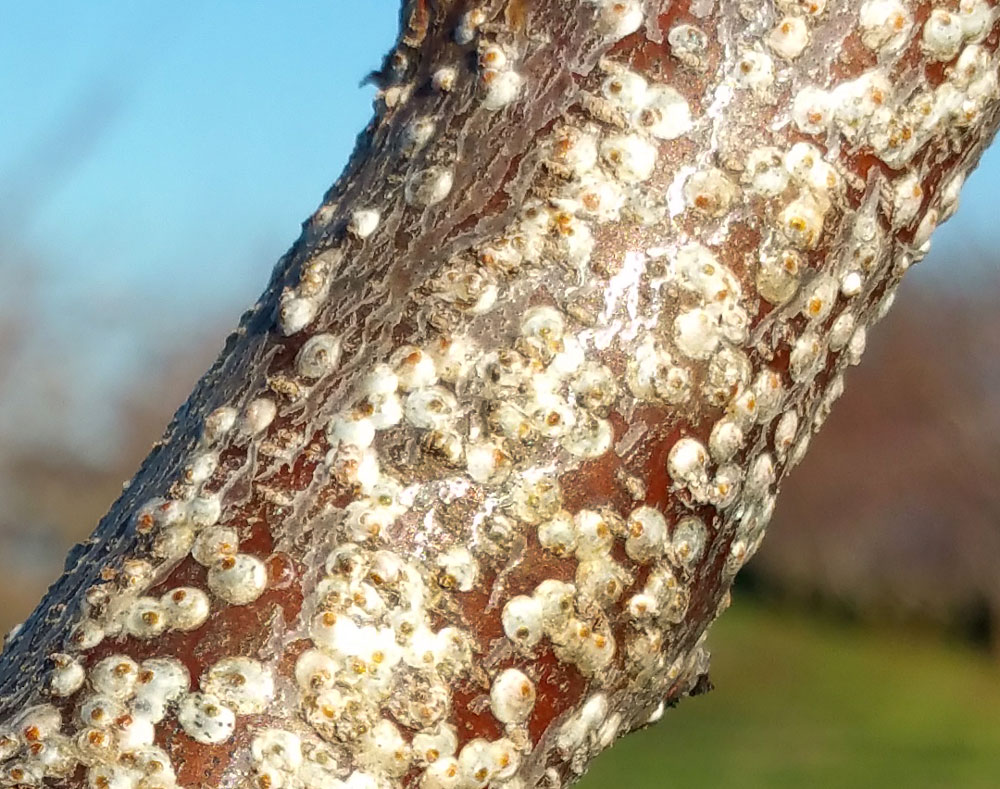
Scale infestation often results in the presence of sticky honeydew on the plant’s surface .
This substance is excreted by the scale insects as they feed on the plant’s sap.
Honeydew can attract ants and promote the growth of black sooty mold, further harming the plant.
Look for small bumps or scales on the plant’s stems, leaves, or branches, indicating scale infestation.
Scales may vary in color, ranging from light brown to dark brown or black, depending on the species.
Close inspection is necessary to accurately identify these scales, as they can blend in with the plant’s surface.
Infested plants may exhibit symptoms of decline, including yellowed, wilted, or distorted leaves.
Overall growth and vigor may be reduced in plants with scale infestations.
Severe infestations can weaken the plant, making it susceptible to other pests and diseases.
Integrated Pest Management: A Holistic Approach to Scale Insect Control
Integrated Pest Management (IPM) offers a comprehensive and environmentally friendly approach to scale insect control. By combining multiple strategies, IPM aims to reduce the scale population while minimizing the use of chemical pesticides. One of the key principles of IPM is prevention.
- By implementing cultural control methods, such as maintaining plant health and hygiene, growers can create unfavorable conditions for scale insects to thrive.
- These methods include regular pruning, eliminating weeds and debris, and proper sanitation practices.
- Additionally, the use of resistant plant varieties can serve as a long-term preventive measure against scale infestations.
- When prevention measures are not sufficient, physical control measures can be employed to directly remove scale insects from plants.
- This involves manually brushing or scraping off the scales with a soft brush or cloth.
- However, it is important to exercise caution during this process to avoid damaging the plant.
- Another physical control technique is the use of high-pressure water sprays, which can dislodge scales from the plant surface.
- While physical control measures can provide immediate relief, they may need to be repeated periodically, especially for larger infestations.
Cultural Control Methods: Preventing and Reducing Scale Insect Populations
Cultural control methods play a crucial role in preventing and reducing scale insect populations in your garden or greenhouse. By implementing these practices, you can create an environment that is less favorable for these pests to thrive, thus minimizing the chances of infestation.

- Sanitation Practices:
- Regular Inspection: Make it a habit to inspect your plants frequently. Look for signs of scale insects, such as waxy coverings, bumps, or discoloration on stems and leaves.
- Prompt Removal: If you spot any infested plant parts, remove them immediately. Dispose of them away from your garden to prevent further infestations. These removed parts can indeed serve as breeding grounds for scales.
- Clean Up Fallen Leaves and Debris: Fallen leaves, dead plant material, and debris can harbor scale insects. Regularly clean up your garden area to eliminate potential hiding spots.
- Plant Proper Selection and Placement:
- Choose Resistant Plants: Some plant species are naturally less attractive to scales. Research and select plants that have built-in resistance or are less prone to infestations.
- Strategic Planting: Consider the layout of your garden. Place susceptible plants away from known scale hotspots or infested areas. Isolate vulnerable species to prevent the spread of scales.
- Diversity: A diverse garden with various plant species can disrupt the life cycle of scale insects. Different plants attract different pests, so mixing things up can help limit infestations.
Implementing these cultural control methods can significantly contribute to preventing and reducing scale insect populations in your garden or greenhouse. By practicing good sanitation and carefully selecting and placing plants, you can create an environment that is less favorable for scale infestations. Stay tuned as we explore more effective methods for managing and controlling scale insects in the upcoming sections.
Physical Control Measures: Removing Scale Insects Through Manual Techniques
Scale insects can be a nuisance for gardeners and plant enthusiasts, as they can gradually weaken and damage plants if left unchecked. Fortunately, there are effective manual techniques that can be employed to control and remove these pesky pests. One method is to physically remove the scale insects by hand or with a soft brush.
- Manual Removal:
- Scraping and Brushing: Gently scraping or brushing the affected areas to remove both adult scale insects and their eggs is an effective method. The protective coverings can be dislodged, reducing the overall population.
- Attention to Eggs: Pay special attention to the hidden eggs under the waxy scales. Removing them prevents future generations from hatching.
- High-Pressure Water Stream:
- Method: Using a high-pressure stream of water to dislodge scale insects is a natural approach. It’s particularly useful for larger plants or those with dense foliage.
- Application: Direct the stream at the infested areas, knocking off the scales. The force of the water should be sufficient to remove the pests without damaging the plants.
- Regular Application: Repeat this method periodically to prevent reinfestation.
However, it is important to ensure that the water pressure is not too high, as this could damage the plants. Additionally, this method should be repeated regularly to prevent reinfestation.
Biological Control Agents: Utilizing Natural Predators to Combat Scale Insects

Biological control agents offer an effective and environmentally friendly approach to combating scale insects.
These natural predators play a vital role in keeping scale populations under control and preventing infestations from spreading.
Introducing beneficial organisms into affected areas harnesses the power of nature to maintain a healthy balance in the garden ecosystem.
Ladybugs are voracious predators that feed on many species of scale insects, including mealybugs and armored scales.
These small, brightly colored beetles have a strong appetite for scale pests, targeting both larvae and adults.
Ladybugs are highly effective in reducing scale populations, making them a valuable tool for scale insect management.
Lacewings, predatory mites, and parasitic wasps are additional natural enemies that can be utilized to control scale insects.
These predators prey on scale pests, helping to keep their populations in check and prevent infestations.
Insecticidal Soap: A Safe and Effective Solution for Scale Insect Management
Insecticidal soap is a widely recognized and trusted solution for managing scale insects. This safe and effective treatment option is often recommended by experts due to its ability to combat scale infestations without causing harm to the surrounding plants or the environment.

- Timing and Environmental Conditions:
- Avoid High Temperatures: Refrain from applying insecticidal soap during hot weather or intense sunlight. High temperatures can stress your plants and potentially harm them.
- Choose Optimal Times: Apply the soap during cooler parts of the day, such as early morning or late afternoon.
- Compatibility Testing:
- Patch Test: Before treating the entire plant population, perform a small-scale test. Apply the insecticidal soap to a small area of the plant and observe any adverse reactions. This helps ensure compatibility with your specific plant species.
- Variability Across Plants: Remember that different plants may react differently to the soap. Some may be more sensitive than others.
- Application Technique:
- Uniform Coverage: Apply the insecticidal soap evenly to all infested areas. Ensure thorough coverage of both the scales and their protective coverings.
- Undersides of Leaves: Don’t forget to treat the undersides of leaves, where scale insects often hide.
- Rinse and Monitor:
- Rinse After Application: After allowing the soap to work for the recommended time (usually a few hours), rinse the treated plants gently with water. This helps remove any residue.
- Observation Period: Monitor your plants closely over the next few days. Look for signs of improvement or any adverse effects.
By following these precautions, you can safely and effectively manage scale insect infestations using insecticidal soap.
Horticultural Oils: Utilizing Oil-Based Treatments to Suffocate Scale Insects
Horticultural oils are an effective solution for controlling scale insects on plants. These oil-based treatments work by suffocating the pests, disrupting their breathing and ultimately causing their demise. The oils are derived from petroleum or plant sources, such as neem or mineral oil, and are applied directly to the infested areas of the plant.
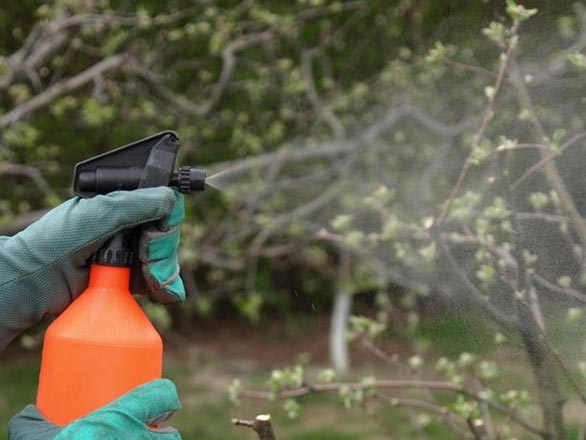
- Proper Application Techniques: Apply horticultural oils during the dormant season or when insects are most vulnerable. Thoroughly cover all affected plant surfaces, including hidden crevices where scale insects may hide, to ensure maximum effectiveness.
- Safe and Reliable Control Method: Widely used in horticulture for scale insect control, horticultural oils are a safe and reliable option. They are particularly beneficial in organic gardening or when treating sensitive plant species where chemical insecticides may not be suitable.
- Testing for Sensitivity: Some plants may be sensitive to horticultural oils, so it’s essential to test a small area before applying to the entire plant. This precaution helps avoid potential damage to sensitive plants.
- Long-lasting Effectiveness: In addition to suffocating scale insects, horticultural oils leave behind a thin film on plant surfaces, acting as a deterrent to future infestations. This barrier prevents the pests from attaching to the plant, providing long-lasting protection against scale insects and future infestations.
Overall, horticultural oils are a valuable tool for gardeners and plant enthusiasts in their battle against scale insects. Their suffocating action, coupled with the residual barrier they provide, make them an effective, safe, and environmentally friendly method of scale insect control.
The Monterey Horticultural Oil has been a reliable ally in my pest control efforts. Its natural formulation effectively targets a wide range of pests while minimizing harm to beneficial insects and the environment. I appreciate its versatility, as it can be used throughout the growing season and even as a dormant spray. While its effectiveness may vary depending on the pest and infestation severity, it’s a valuable tool for any gardener seeking safer and more sustainable pest management solutions.
- Effective Pest Control: Provides control of a wide range of pests, including aphids, mites, and scale insects, without harming beneficial insects.
- Organic Option: Made from natural oils, making it a safer and eco-friendly alternative to chemical pesticides.
- Multi-Purpose: Can be used as a dormant spray to control overwintering pests and diseases, as well as for general pest management throughout the growing season.
- Residual Effect: Offers residual control, providing ongoing protection against pests after application.
- Low Risk of Resistance: Less likely to cause pest resistance compared to synthetic pesticides, reducing the risk of future outbreaks.
- Easy Application: Comes in a convenient spray bottle or concentrate form, allowing for easy application on plants.
- Limited Effectiveness: May not provide complete control of all pest species or severe infestations, requiring additional treatments or integrated pest management strategies.
- Potential Plant Sensitivity: Some plants may be sensitive to horticultural oils, leading to leaf burn or other damage, necessitating a test application on a small area before widespread use.
- Application Timing: Timing of application is crucial for optimal effectiveness, with some pests being more susceptible at specific stages of their life cycle.
- Weather Considerations: Best applied during dry weather to avoid wash-off and maximize efficacy, which may limit application opportunities in rainy or windy conditions.
- Short Residual Period: Residual control may not last as long as synthetic pesticides, requiring more frequent applications for ongoing pest management.
- Odor and Residue: Some users may find the odor of horticultural oils unpleasant, and residue may be visible on plant surfaces after application, although this typically dissipates over time.
Neem Oil: A Natural and Organic Solution for Scale Insect Infestations
Neem oil has emerged as a natural and organic solution for effectively managing scale insect infestations.
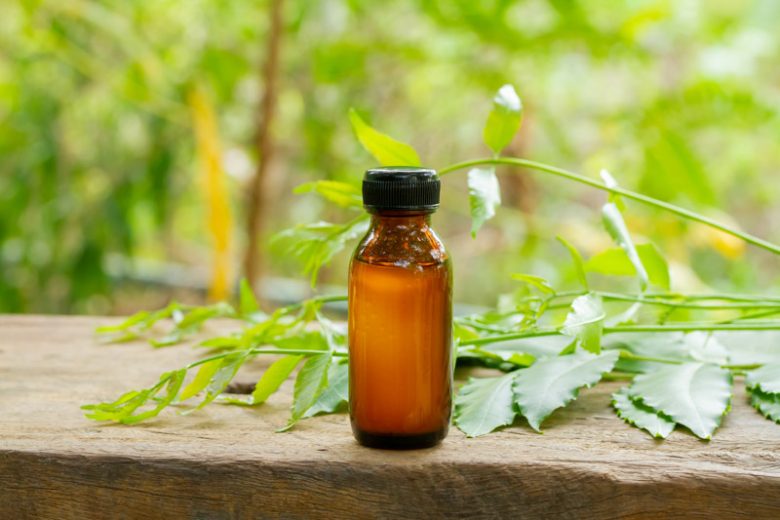
- Neem oil is derived from the neem tree, Azadirachta indica, and is a popular choice among gardeners for managing scale insect infestations.
- It disrupts the life cycle of scale insects by targeting them at various stages of development, inhibiting their feeding habits, reproduction, and growth.
- This not only controls existing infestations but also prevents new scale insects from emerging, reducing the chance of reinfestation.
- Neem oil is considered safe for both plants and beneficial insects, as it poses minimal risk to non-target organisms.
- Its systemic properties allow it to be absorbed by plants, enhancing its effectiveness and providing long-lasting protection.
- However, it is important to follow recommended application guidelines to avoid phytotoxicity or damage to the plant.
- By incorporating neem oil into an integrated pest management approach, gardeners can effectively combat scale insect infestations while promoting plant health.
- Regular monitoring and early intervention can help detect scale infestations before they become widespread and allow for timely treatment with neem oil.
The Harris Neem Oil Spray for Plants has been an effective natural solution in my pest control routine. Its organic composition makes it safe for my plants and the environment, effectively combating a variety of pests like aphids and mites while also addressing fungal diseases such as powdery mildew. Although its strong odor may be off-putting initially, it dissipates quickly, and the ease of application with the spray bottle makes it convenient to use. Overall, it’s a reliable choice for any gardener looking for an eco-friendly pest control option.
✅ Multi-Purpose: Can be used to combat a variety of pests, including aphids, mites, and whiteflies, as well as fungal diseases like powdery mildew.
✅ Plant Health: Helps to improve overall plant health by suppressing pest populations and reducing the spread of diseases.
✅ Easy Application: Comes in a convenient spray bottle for easy and precise application to plant foliage, stems, and undersides of leaves.
✅ Residual Effect: Offers residual control, providing ongoing protection against pests and diseases after application.
✅ Biodegradable: Neem oil breaks down quickly in the environment, minimizing harm to soil and water ecosystems.
❌ Potential Leaf Burn: Neem oil can cause leaf burn on sensitive plants or when applied in high concentrations, so it’s essential to test on a small area before widespread use.
❌ Effectiveness Variability: The effectiveness of neem oil may vary depending on the type of pest, stage of infestation, and environmental conditions.
❌ Limited Persistence: Requires regular reapplication, especially after rainfall or irrigation, to maintain effectiveness against pests and diseases.
❌ Slow Action: Neem oil may take some time to show results, requiring patience and consistent application for pest control.
❌ Potential Allergic Reactions: Some individuals may experience allergic reactions or skin irritation when handling neem oil, so it’s important to use protective gear and follow safety precautions.
DIY Remedies: Homemade Solutions to Treat Scale Insects on Your Plants
When it comes to treating scale insects on your plants, there are several DIY remedies that can be effective in reducing and controlling infestations.
Dish Soap and Water Mixture:
One popular homemade solution is a mixture of dish soap and water. The soap suffocates the insects, causing them to die off. To make this solution, simply mix a few drops of dish soap with water in a spray bottle and apply it directly to the affected areas of your plants.
Rubbing alcohol
Another DIY remedy that has shown promise in treating scale insects is alcohol. Rubbing alcohol can be used to kill the pests on contact. Simply dip a cotton ball or swab into the alcohol and apply it directly to the scales. This method may require some patience and persistence, as it may be necessary to repeat the treatment multiple times to fully eliminate the infestation. However, it can be a cost-effective and easily accessible option for those looking to tackle scale insects at home.
While these DIY remedies can be effective in treating scale insects, it’s important to remember that prevention is key. Regularly inspect your plants for signs of infestation, and take action at the first sight of scales. Additionally, practicing good plant hygiene, such as regularly cleaning and sanitizing your gardening tools, can help prevent the spread of these pests.
By utilizing these homemade solutions and implementing preventative measures, you can effectively treat and manage scale insect infestations in your garden.
Preventing Scale Insect Reinfestation: Maintenance Tips for Long-Term Control
To maintain long-term control over scale insect infestations, it is essential to implement effective preventative measures. These maintenance tips will help gardeners minimize the chances of scale reinfestation and ensure the health and vitality of their plants.
1. Regular Monitoring and Inspection: Perform routine inspections of your plants to detect the early signs of scale insects. Look closely at the stems, leaves, and branches for small, oval-shaped insects or their protective scales. By identifying an infestation at an early stage, you can take prompt action and prevent the scale population from spreading.
2. Sanitation Practices: Good garden hygiene plays a crucial role in preventing scale insect reinfestation. Remove any fallen leaves, pruned branches, or dead plant material from the growing area. Scale insects often lay eggs or take refuge in debris, so clearing away these hiding places can significantly reduce their chances of survival and reestablishment.
By following these maintenance tips, gardeners can create an unfavorable environment for scale insects, minimizing the risk of reinfestation and protecting their plants from damage. Stay tuned for more in-depth information on scale insect management and prevention techniques in our upcoming articles.
Seeking Professional Help: When to Consult an Expert for Severe Scale Infestations
Severe scale infestations can be a challenging problem for even the most experienced gardeners. While there are many control methods that can be implemented at a home garden level, sometimes it becomes necessary to seek the assistance of a professional. But when exactly should you consult an expert for severe scale infestations?
- Persistent Ineffectiveness:
- If your previous efforts using cultural control methods, physical removal, and insecticidal soaps/oils have not significantly reduced the scale populations, it’s time to seek expert advice.
- Professionals can assess the situation objectively and recommend targeted solutions.
- Severity of Infestation:
- When the scale infestation is severe or widespread, professional intervention becomes crucial.
- Large-scale or commercial operations especially benefit from expert evaluation due to higher stakes.
- Specialized Knowledge and Techniques:
- Professionals have in-depth knowledge of scale insects, their life cycles, and behavior.
- They can recommend advanced control methods specific to your situation.
- Risk Mitigation:
- By consulting an expert, you minimize potential losses and maximize the chances of successful scale management.
- Their expertise ensures a comprehensive approach tailored to your garden’s needs.
Remember, seeking professional help is a proactive step toward maintaining healthy plants and preserving your garden’s vitality. 🌿🪲
Watch video for more information:
FAQ
What are some common signs of a scale infestation?
Some common signs of a scale infestation include yellowing or wilting leaves, sticky or shiny leaves, sooty mold growth, and the presence of small, oval-shaped bumps on the plant’s stems or leaves.
How do scale insects reproduce?
Scale insects reproduce through a process called parthenogenesis, where females lay eggs without mating. These eggs hatch into crawlers, which are tiny, mobile nymphs that eventually settle on a host plant and develop into adult scales.
What is integrated pest management (IPM)?
Integrated pest management is a holistic approach to pest control that focuses on long-term prevention and management rather than relying solely on chemical treatments. It involves combining different strategies such as cultural control, physical control, biological control, and targeted pesticide application.
What are some cultural control methods for managing scale insects?
Cultural control methods for managing scale insects include regular inspection and monitoring of plants, pruning infested branches, maintaining plant health through proper watering and fertilization, and promoting beneficial insects or natural predators in the garden.
Are there any natural predators that can help control scale insects?
Yes, there are several natural predators that can help control scale insects, such as ladybugs, lacewings, parasitic wasps, and predatory mites. These beneficial insects feed on scale insects and can help keep their populations in check.
How can insecticidal soap be used to manage scale insect infestations?
Insecticidal soap is a safe and effective solution for managing scale insects. It works by suffocating the pests, and it can be applied directly to the affected plant parts. It is important to follow the instructions on the product label and apply at the recommended intervals.
What are horticultural oils and how can they be used to suffocate scale insects?
Horticultural oils are oil-based treatments that can suffocate scale insects by coating their bodies and blocking their oxygen supply. These oils can be applied to the plant’s foliage, targeting the scale insects directly. It is important to choose the appropriate oil and follow the instructions for safe and effective use.
Can neem oil be used to treat scale insect infestations?
Yes, neem oil is a natural and organic solution for scale insect infestations. It is derived from the neem tree and contains compounds that disrupt the growth and reproduction of scale insects. Neem oil can be sprayed on affected plants, ensuring thorough coverage of all infested areas.
What are some DIY remedies for treating scale insects on plants?
Some DIY remedies for treating scale insects include using a mixture of water and dish soap, rubbing alcohol, or a solution of water and garlic. These remedies can be applied directly to the insects or sprayed on the affected plant parts to help control the infestation.
When should I consider seeking professional help for severe scale infestations?
It is recommended to seek professional help for severe scale infestations when the infestation is widespread, persistent, or causing significant damage to the plants. A professional can assess the situation, provide targeted treatments, and offer advice on long-term management strategies.

Studied Agricultural Engineering-Plant Protection at University of California, Davis.
Head of Content writing team at Southelmontehydroponics.com

